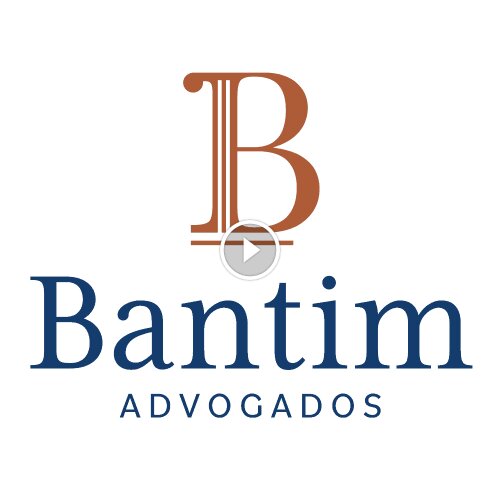Best Securities Lawyers in Sao Paulo
Share your needs with us, get contacted by law firms.
Free. Takes 2 min.
List of the best lawyers in Sao Paulo, Brazil
About Securities Law in Sao Paulo, Brazil
Securities law in Sao Paulo, Brazil, regulates the issuance, negotiation, and trading of securities such as stocks, bonds, debentures, and investment funds. As the largest financial hub in Latin America, Sao Paulo is home to the B3 Stock Exchange (Brasil Bolsa Balcão) and hosts significant activity involving public and private market offerings. The legal framework aims to promote transparency, protect investors, and foster market stability. The rules are shaped nationally by federal regulations but are highly relevant locally, considering the concentration of financial activity in Sao Paulo.
Why You May Need a Lawyer
People often seek legal assistance for securities matters in situations including:
- Initial Public Offerings (IPOs) or other public or private equity offerings where companies must comply with complex regulatory requirements.
- Purchase or sale of significant shareholdings in public companies, where disclosure obligations or corporate governance issues may arise.
- Investigations, sanctions, or compliance checks initiated by regulators such as the Comissão de Valores Mobiliários (CVM), Brazil’s Securities Commission.
- Drafting or reviewing investment agreements, underwriting documents, and prospectuses for financial products.
- Litigation or dispute resolution involving securities fraud, insider trading, or misrepresentation.
- Advising on cross-border investment or foreign participation in the Brazilian market.
Given the technical nature of most securities cases and the potential for severe financial or criminal penalties, legal representation is highly recommended.
Local Laws Overview
Securities activity in Sao Paulo is primarily governed by federal legislation but is heavily shaped by local practices and enforcement. The key legal sources include:
- Law No. 6.385-1976 (Securities Market Law) - Establishes the framework for securities regulation and creates the CVM.
- Law No. 6.404-1976 (Corporations Law) - Regulates companies admitted to trading on stock exchanges, including disclosure and governance.
- Regulations imposed by the CVM - Cover matters such as registration of securities, public offerings, insider trading, and market manipulation.
- B3 Stock Exchange Rules - Dictate the requirements and procedures for trading, listing, and compliance in Sao Paulo.
Lawyers in Sao Paulo must also consider anti-money laundering statutes, tax rules, and evolving rules regarding new products such as digital assets or investment funds. Local expertise is crucial given the city’s central role in enforcement actions and compliance expectations.
Frequently Asked Questions
What counts as a security in Brazil?
A security is any tradable financial asset, such as shares, debentures, bonds, investment fund units, or derivatives. The definition is broad and subject to regulation by the CVM.
Who regulates securities in Sao Paulo?
Securities are regulated nationally by the Comissão de Valores Mobiliários (CVM), which oversees the rules, registration, and enforcement throughout Brazil, including Sao Paulo.
How can I buy or sell shares on the B3 exchange?
You must use a registered broker authorized by the B3 exchange. Both Brazilian residents and foreigners can invest, but certain rules and reporting obligations apply.
What are the main risks in securities investments?
Risks include market volatility, company performance, fraud, regulatory sanctions, and, for certain investments, lack of liquidity. Investors should thoroughly research their investments and ensure all transactions are conducted lawfully.
What is insider trading and why is it prohibited?
Insider trading involves buying or selling securities based on non-public, material information. It is illegal in Brazil and can result in civil or criminal penalties.
Is it necessary to register all public offerings with the CVM?
Yes, public offerings of securities generally require prior registration with the CVM unless a specific exemption applies, such as private placements to qualified investors.
Can foreigners participate in the Sao Paulo securities market?
Yes, foreigners can invest either directly or through funds, but must comply with regulatory requirements, register with the Central Bank, and appoint a local representative.
What can I do if I suspect fraud or market manipulation?
You should report your suspicions to the CVM. Legal counsel can also help you understand your rights and potential remedies.
What are the consequences of breaching securities laws in Brazil?
Penalties include fines, injunctions, trading bans, and in severe cases, criminal prosecution and imprisonment.
How can I resolve disputes related to securities?
Disputes may be brought before the courts, resolved through arbitration, or mediated by the B3 exchange or other institutions, depending on the facts and the contracts between the parties.
Additional Resources
To learn more or seek help, you can refer to the following resources:
- Comissão de Valores Mobiliários (CVM) - The official regulator for the securities market in Brazil, providing investor guidelines and complaint channels.
- B3 Stock Exchange - The main stock exchange for trading public securities in Sao Paulo.
- Ordem dos Advogados do Brasil - São Paulo Section (OAB-SP) - For finding licensed lawyers specialized in securities law.
- Association of Investment Banks or Market Professionals - For guidance and support related to market operations.
- Federal Public Ministry and the Police - Where to report suspected crimes or violations in the market.
Next Steps
If you need legal assistance regarding securities in Sao Paulo, Brazil, consider the following steps:
- Collect all relevant documents, such as contracts, transaction records, and correspondence related to your securities matter.
- Identify the nature of your issue, whether it concerns compliance, investment, dispute, or regulatory inquiry.
- Contact a qualified lawyer who has experience in securities law, preferably with practice in Sao Paulo.
- Prepare a summary of your case or questions to make discussions with your lawyer more productive.
- Seek guidance from regulatory bodies such as the CVM if your situation involves reporting a violation or understanding your investor rights.
- Remain proactive about deadlines, as regulatory filings and complaints are often subject to strict time limits.
Taking prompt, informed action with professional legal support will help you navigate the complexities of securities matters in Sao Paulo and protect your interests in this dynamic market.
Lawzana helps you find the best lawyers and law firms in Sao Paulo through a curated and pre-screened list of qualified legal professionals. Our platform offers rankings and detailed profiles of attorneys and law firms, allowing you to compare based on practice areas, including Securities, experience, and client feedback.
Each profile includes a description of the firm's areas of practice, client reviews, team members and partners, year of establishment, spoken languages, office locations, contact information, social media presence, and any published articles or resources. Most firms on our platform speak English and are experienced in both local and international legal matters.
Get a quote from top-rated law firms in Sao Paulo, Brazil — quickly, securely, and without unnecessary hassle.
Disclaimer:
The information provided on this page is for general informational purposes only and does not constitute legal advice. While we strive to ensure the accuracy and relevance of the content, legal information may change over time, and interpretations of the law can vary. You should always consult with a qualified legal professional for advice specific to your situation.
We disclaim all liability for actions taken or not taken based on the content of this page. If you believe any information is incorrect or outdated, please contact us, and we will review and update it where appropriate.










